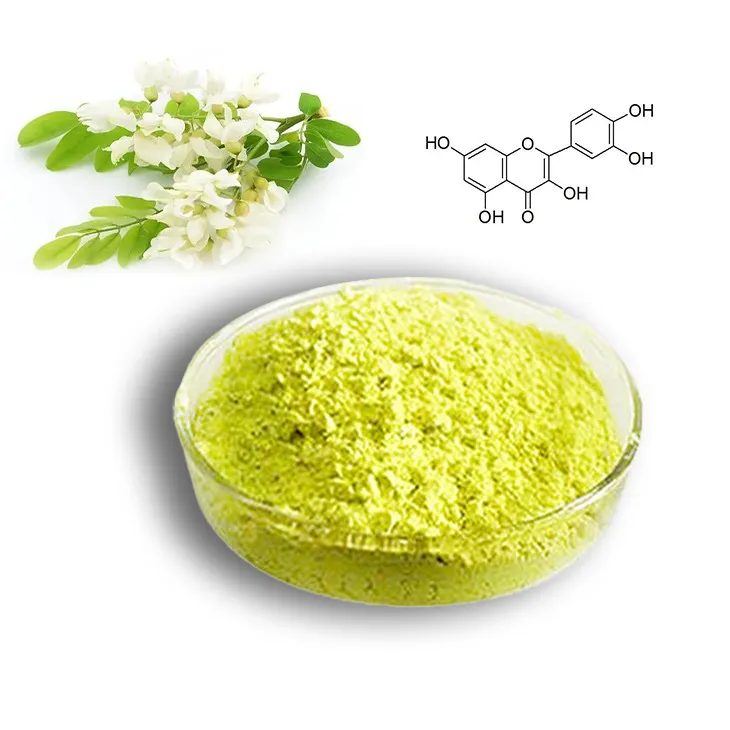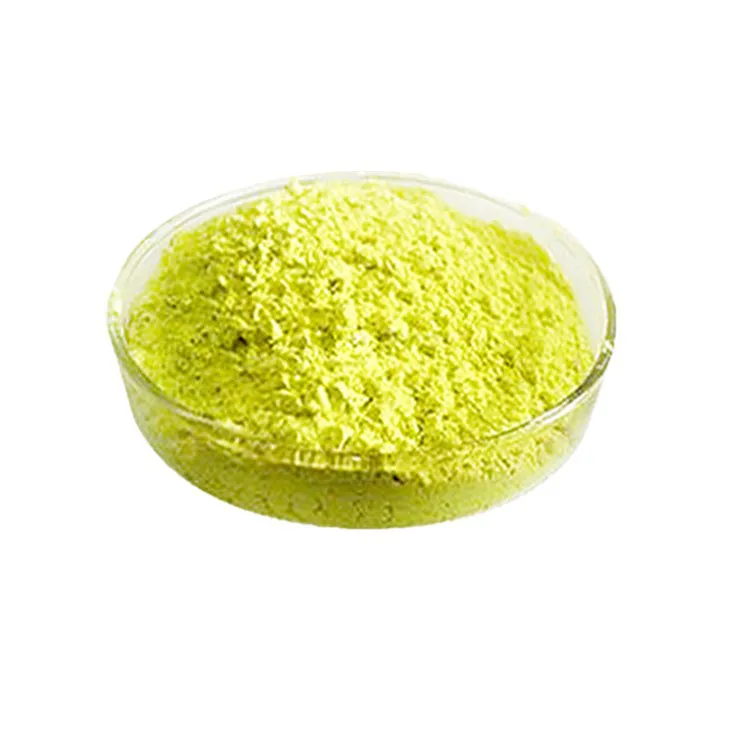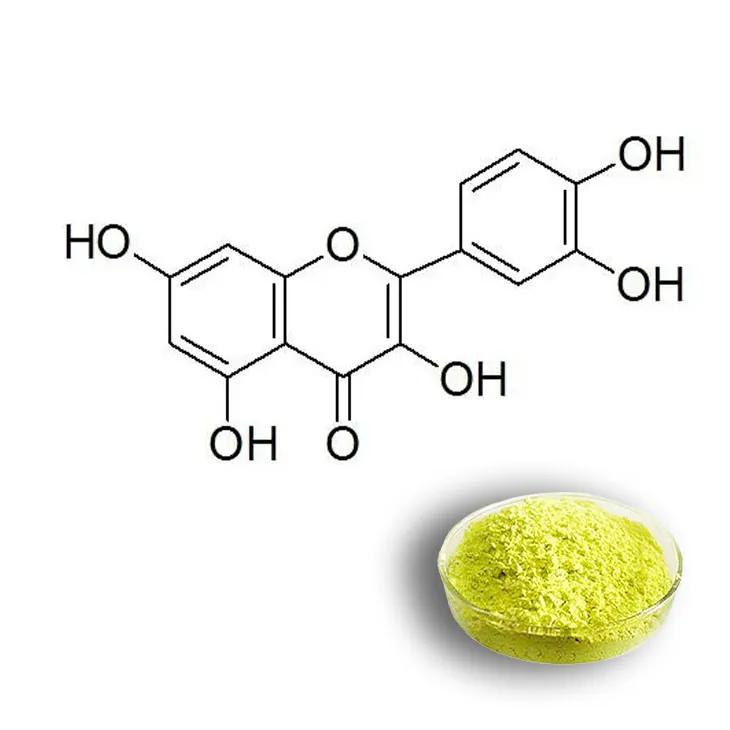- 0086-571-85302990
- sales@greenskybio.com
Quercetin: Benefits and Consumption Guide
2024-11-12

1. Introduction to Quercetin
Quercetin is a flavonoid, a type of natural compound that is widely found in various plants. It is abundant in fruits, vegetables, and grains. Some of the common sources of Quercetin include apples, onions, berries, and green tea. This natural pigment gives color to many plants and has been a subject of extensive research due to its potential health - enhancing properties.

2. Health Benefits of Quercetin
2.1 Immune System Boost
Quercetin has been shown to play a role in strengthening the immune system. It can enhance the function of immune cells, such as macrophages and lymphocytes. Macrophages are important for engulfing and destroying foreign invaders like bacteria and viruses. Lymphocytes, on the other hand, are responsible for recognizing specific antigens and mounting an immune response. Quercetin can also modulate the production of cytokines, which are signaling molecules in the immune system. By regulating cytokine production, it helps in maintaining a balanced immune response, preventing excessive inflammation which can be harmful.
2.2 Antioxidant Activity
One of the most significant benefits of quercetin is its antioxidant property. In the body, free radicals are constantly produced as a by - product of normal metabolism or due to environmental factors such as pollution, radiation, and smoking. These free radicals can cause damage to cells, including DNA damage, which may lead to various diseases, including cancer. Quercetin acts as an antioxidant by donating electrons to free radicals, thereby neutralizing them and preventing them from causing cellular harm. It can also regenerate other antioxidants in the body, such as vitamin C, which further enhances the antioxidant defense system.
2.3 Anti - Inflammatory Effects
Chronic inflammation is associated with many diseases, such as heart disease, arthritis, and diabetes. Quercetin has been found to possess anti - inflammatory properties. It can inhibit the activity of enzymes, such as cyclooxygenase - 2 (COX - 2) and lipoxygenase (LOX), which are involved in the production of inflammatory mediators like prostaglandins and leukotrienes. By reducing the production of these inflammatory substances, quercetin can help in alleviating inflammation in the body. Additionally, it can also regulate the activation of nuclear factor - kappa B (NF - κB), a key transcription factor involved in the inflammatory response.

3. Other Potential Benefits
3.1 Cardiovascular Health
Quercetin may have positive effects on cardiovascular health. It can help in reducing blood pressure by relaxing blood vessels. This is achieved through its ability to modulate the endothelial function, which is crucial for maintaining normal blood vessel tone. Additionally, quercetin can also lower cholesterol levels, particularly LDL - cholesterol (the "bad" cholesterol). By reducing oxidative stress in the blood vessels and improving lipid profiles, it may contribute to a lower risk of heart disease.
3.2 Cancer Prevention
While more research is needed, there is some evidence to suggest that quercetin may play a role in cancer prevention. Its antioxidant and anti - inflammatory properties may help in preventing the initiation and progression of cancer. It can also interfere with the growth and spread of cancer cells by modulating various signaling pathways involved in cell proliferation, apoptosis (programmed cell death), and angiogenesis (the formation of new blood vessels that supply tumors). However, it should be noted that quercetin is not a substitute for standard cancer treatments, but rather a potential complementary approach.
3.3 Neurological Protection
Quercetin may also offer some protection to the nervous system. It has been shown to have neuroprotective effects in some studies. It can reduce oxidative stress and inflammation in the brain, which are associated with neurodegenerative diseases such as Alzheimer's and Parkinson's. Additionally, quercetin may also enhance cognitive function by improving blood flow to the brain and modulating neurotransmitter levels.

4. Consumption Guide
4.1 Dietary Sources
As mentioned earlier, quercetin is found in a variety of foods. Incorporating these foods into your diet is a natural way to increase your quercetin intake.
- Apples: Apples, especially the skin, are a good source of quercetin. Eating an apple a day can contribute to your quercetin intake.
- Onions: Onions, particularly red onions, contain a significant amount of quercetin. They can be used in cooking or eaten raw in salads.
- Berries: Berries such as blueberries, strawberries, and raspberries are rich in quercetin. Adding a handful of berries to your breakfast or as a snack can be beneficial.
- Green Tea: Green tea contains quercetin as well as other beneficial compounds. Drinking a cup or two of green tea daily can provide a small amount of quercetin.
4.2 Supplements
If it is difficult to obtain sufficient quercetin from diet alone, supplements can be an option. However, it is important to use them carefully.
- Consult a Doctor: Before starting any quercetin supplement, it is advisable to consult a healthcare provider. They can assess your individual health needs and determine if a supplement is appropriate for you.
- Quality and Purity: When choosing a supplement, look for high - quality products from reputable manufacturers. Check for third - party testing to ensure the purity and potency of the supplement.
- Dosage: The appropriate dosage of quercetin can vary depending on the individual and the intended use. In general, dosages range from 500 mg to 1000 mg per day, but this should be determined by a healthcare professional.

5. Precautions
While quercetin is generally considered safe for most people when consumed in normal amounts from dietary sources, there are some precautions to keep in mind when using supplements.
- Allergic Reactions: Some people may be allergic to quercetin or the plants from which it is derived. If you experience any allergic symptoms such as itching, swelling, or difficulty breathing after taking a quercetin supplement, discontinue use immediately and seek medical attention.
- Drug Interactions: Quercetin may interact with certain medications. For example, it may interfere with the absorption or effectiveness of some antibiotics or blood - thinning medications. Inform your doctor if you are taking any medications before starting a quercetin supplement.
- Pregnancy and Breastfeeding: There is limited information on the safety of quercetin during pregnancy and breastfeeding. It is best to avoid using quercetin supplements during these periods unless recommended by a healthcare provider.
6. Conclusion
Quercetin is a natural compound with a wide range of potential health benefits, including immune system support, antioxidant and anti - inflammatory effects, and potential benefits for cardiovascular health, cancer prevention, and neurological protection. While it can be obtained from dietary sources, supplements may be considered for those who need additional intake. However, it is important to follow the consumption guide and take necessary precautions to ensure safe and effective use.
FAQ:
What is quercetin?
Quercetin is a natural flavonoid compound that can be found in many fruits, vegetables, and grains. It is known for its various biological activities and potential health benefits.
How does quercetin boost the immune system?
Quercetin may enhance the immune system by modulating immune cell function. It can stimulate the activity of certain immune cells like macrophages and lymphocytes, which play crucial roles in fighting off infections and maintaining overall immune health.
What makes quercetin an antioxidant?
Quercetin has antioxidant properties because it can scavenge free radicals in the body. Free radicals are unstable molecules that can cause oxidative stress and damage cells. By donating electrons to these free radicals, quercetin stabilizes them and reduces their harmful effects on the body.
Can quercetin really reduce inflammation?
There is evidence suggesting that quercetin has anti - inflammatory effects. It can inhibit the production of inflammatory mediators such as cytokines and prostaglandins. By doing so, it may help to reduce inflammation in the body, which is associated with many chronic diseases.
How should quercetin be consumed?
Quercetin can be consumed through diet by eating foods rich in it, such as apples, onions, and berries. It is also available in supplement form. However, when taking supplements, it is important to follow the recommended dosage instructions. Consult a healthcare professional before starting any new supplement regimen, especially if you have underlying health conditions or are taking medications.
Related literature
- Quercetin: A Promising Molecule for Health Benefits"
- "The Antioxidant and Anti - Inflammatory Effects of Quercetin: A Review"
- "Quercetin and Immune Function: An Overview"
- ▶ Hesperidin
- ▶ citrus bioflavonoids
- ▶ plant extract
- ▶ lycopene
- ▶ Diosmin
- ▶ Grape seed extract
- ▶ Sea buckthorn Juice Powder
- ▶ Beetroot powder
- ▶ Hops Extract
- ▶ Artichoke Extract
- ▶ Reishi mushroom extract
- ▶ Astaxanthin
- ▶ Green Tea Extract
- ▶ Curcumin Extract
- ▶ Horse Chestnut Extract
- ▶ Other Problems
- ▶ Boswellia Serrata Extract
- ▶ Resveratrol Extract
- ▶ Marigold Extract
- ▶ Grape Leaf Extract
- ▶ blog3
- ▶ blog4
- ▶ blog5
-
Organic Tongkat Ali extract powder factory.
2024-11-12
-
How to make powder with ashwagandha extract.
2024-11-12
-
Rosehip extract manufacturers from China.
2024-11-12
-
The best cat's claw extract in nature.
2024-11-12
-
Chinese Dandelion Leaf Extract Suppliers.
2024-11-12
-
Grape Seed Extract
2024-11-12
-
Cocoa Extract
2024-11-12
-
Clove Powder
2024-11-12
-
Baicalin
2024-11-12
-
Curcuma Longa Extract
2024-11-12
-
Kelp Extract Powder
2024-11-12
-
Artichoke Leaf Extract
2024-11-12
-
Coix Seed Extract
2024-11-12
-
Astaxanthin
2024-11-12
-
Chaste Berry Extract
2024-11-12





















